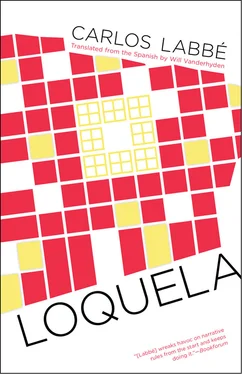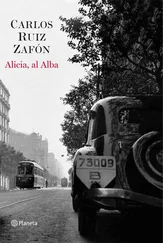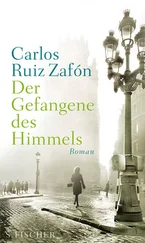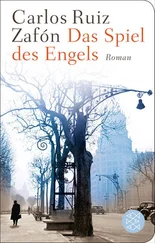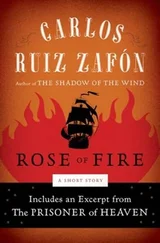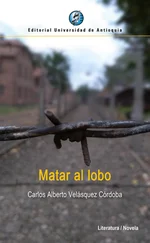In Violeta’s story, on the other hand, Carlos and Beatrice have been life-long neighbors in a neighborhood in the fictional city of Neutria. Beatrice is obsessed with the place’s legend: in a distant time, where a full moon shone every night, the heir and heiress to the thrones of the two Humalén — an imaginary indigenous people — clans, enemies since the beginning, loved one another in silence; as you might surmise, just like in Ovid, Shakespeare, and Lovers of Teruel, their love is as forbidden as it is inevitable. The night before the first rain, when it is customary for both clans to give thanks to the moon for her gifts, the heir and the heiress took refuge in the celebrations, they concealed themselves, they started touching each other; the legend is cut short at this crucial point. And all that’s been recovered is a written epilogue: from that time onward the moon made the decision to show her full self only after several nights of darkness, to remind mankind that fullness is fleeting, and perhaps to subject herself to the same transience as everything that shines on the Earth. In the solitude of her house in Neutria, in front of her notebook, Beatrice wonders what it was that might have befallen the heir and the heiress at that celebration that had sparked everything that followed. Whenever they talk about it, Carlos comes up with all kinds of explanations to answer her questions, because — as we already know — Carlos secretly loves Beatrice. Until one night, coincidently moonlit, he gives his neighbor a letter that recounts the denouement he has imagined for the legend: foreseeing that fatality lies in store for the passion of their children, the fathers of the heir and heiress ask for help, each in his own way, from the moon. And she arranges for the couple to be allowed a single night of love: for the din of the celebrations to provide refuge for the lovers this one time. And so it is. But when morning comes, the heir and heiress of the Humalén clans decide to take their own lives in the same tree: never to part again. The moon, furious at this act of rebellion, withdraws her presence from the Humalén. Beatrice reads the page and weeps. She hugs Carlos, they pull apart, look at each other, and touch again. Early the next morning, Beatrice wakes up and rereads the letter. She calls her neighbor to tell him that she never wants to see him again, that they aren’t friends anymore. Carlos knew the rest of the story by heart. And he verified this by comparing it with his own version, in which the court magician wants to make the young princess his wife and so he reads the mind of the swineherd with whom she converses in the palace gardens every afternoon: because that filthy mind has no room for friendship, not even a spell would be required to break them apart. In the spring the two of them would meet in secret in some passageway for what would be their long-awaited yet ephemeral — though they might have believed the opposite — night of love. The magician outsmarts himself. While in his version of the story the swineherd is hung from a rafter in the pigsty, and princess Elisa willfully drowns herself in a river, Violeta made the ending more implacable: Beatrice flees from the world, she locks herself in her dark room and is found in a state of decomposition weeks later. Carlos, her neighbor, dedicates himself to his job in an administrative office in the center of Neutria for forty years, no family, no friends, no place to call home. He smiles at his coworkers every morning and never tells anyone the daily agony of the fading memory of the touch, the smell, the body of Beatrice that one night, until he forgets even her name and dies, alone, in a hospital bed. And Carlos said none of this to Elisa that day in the bar. He just ordered another beer and handed her the photocopied magazine. Elisa flipped through the pages without seeing them, until she came to the story and read it. A half-hour later she lifted her head, took a last sip from her glass, held Carlos’s hand with affection, and they spoke of other things. She can’t understand the coincidences, he thought. She thought: he’s leaving me all alone.
August 31 st
“In an aberrant world where taking a drink, hoisting a chair, or passing through a doorway are acts requiring superhuman will power” (Luis Harss on Onetti). I’ve decided to stay in my apartment, watch TV, eat, sleep, go out with friends (whomever), have a beer some night with Alicia, or another new friend, a pretty girl I just met with whom I can talk about random stuff, not novels, dreams, or love. Laugh a little. Read the assigned reading for a class, study linguistics, go see movies at an old cinema.
That other stuff is not for me. It’s for another.
(I got up late, cottonmouth. My head was buzzing and I remembered that there had been other days that C had shown up at the university with her face ravaged by insomnia; she told me that when she actually managed to fall asleep she dreamed prolonged misadventures and, for some reason, woke up with the need to recollect these dreams, to recount them to her boyfriend, who was sleeping beside her. Of course, when she turned on the light, the episodes vanished from her memory and she was left empty, her boyfriend waking up grudgingly, complaining to her to please let him sleep. So she turned off the light but was unable to close her eyes, she lay there thinking, imagining that she got up, got dressed in the dark, went out, walked down to Plaza Ñuñoa, and went into a bar. There she met an actor from a TV show who invited her to his apartment in a building across from hers. They slept together. At last, in his arms, C was able to fall into a deep sleep, right when the alarm sounded and she had to get up so she wouldn’t be late for class.)
If I were to stop writing this diary, I imagine, these problems that are wearing me out would disappear. And yet if I were unable to reread my supposed visit to Neutria, if there were no chance of going back to eat cotton candy in the plaza where the statues in the fountain spoke to me, the possibility of fleeing to a better place than this one without leaving my room would disappear. If I were to resign myself to the smog, to spending hours talking about the flooding in Pudahuel produced by yesterday’s rainfall, to spending Saturdays at my grandmother’s house listening to my cousins discuss used SUV prices, all excited over the possibility of acquiring cheaper vehicle registration. If I were to write an essay proving Violeta’s madness through her texts, her cowardice, or simply a letter recriminating Alicia for the way she attributes her own ramblings to her friend, for using a dead person as a pseudonym. And not see her again. Or dress myself in shame, go to J’s apartment, kneel down, beg her forgiveness, tell her I’m ready to begin how I should’ve; like a man who feels physically attracted to a woman, who grows close to her, gets to know her, they like each other, they go out, become a couple, get married. I’d go work on an estate in Rancagua, she’d be a history or philosophy teacher in some prestigious prep school, we’d have three children and satellite TV to break the monotony, no books. If I never read or wrote again about a lost city — silent but with sea and dogs and children — maybe I’d get used to wearing a tie, getting in my car and communicating via honks of the horn with my fellow office workers, residents of Santa María de Manquehue. Or if I were to get up from this chair right now, get on the metro, get off at the bus terminal and, walking up to the ticket window, boldly ask for a ticket to Neutria, the most expensive you have, if you please. Or if, in the middle of a binge, I were to take Alicia to bed, and her legs wrapped around me were cold, even though her hands are always warm. Or if I were to turn myself in at the Police Investigations building on Calle Condell (where last year I sat with J on the sidewalk to listen to the screams of people being tortured) and declare myself guilty of the murder of Violeta Drago, my only pretext being to find out who really killed her. And if after each of these decisions all I received was a laugh, a mocking laugh.
Читать дальше
